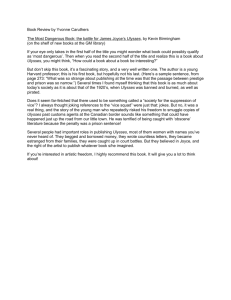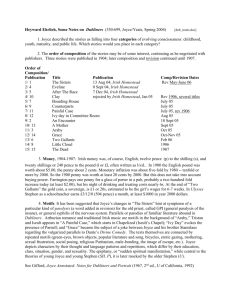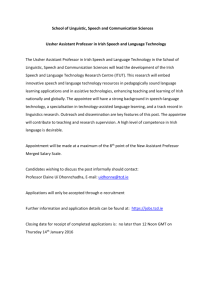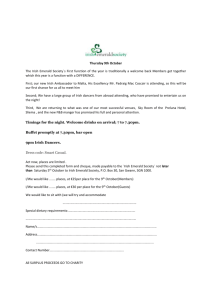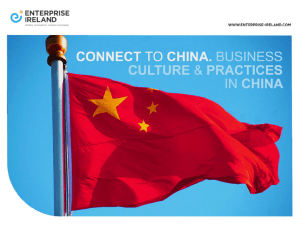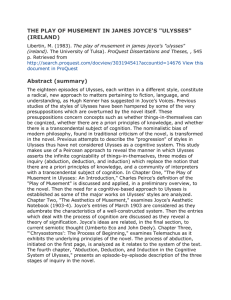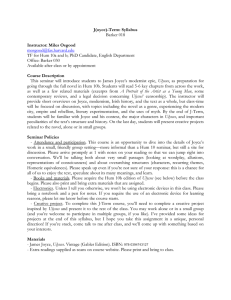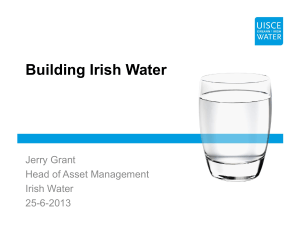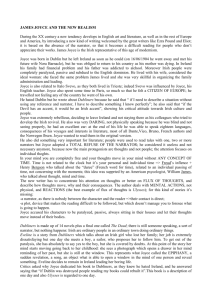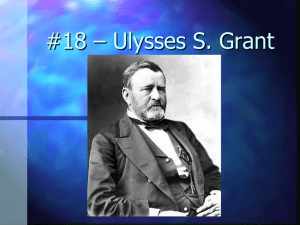James Joyce`s New Modernist and Postcolonial Humanism in
advertisement
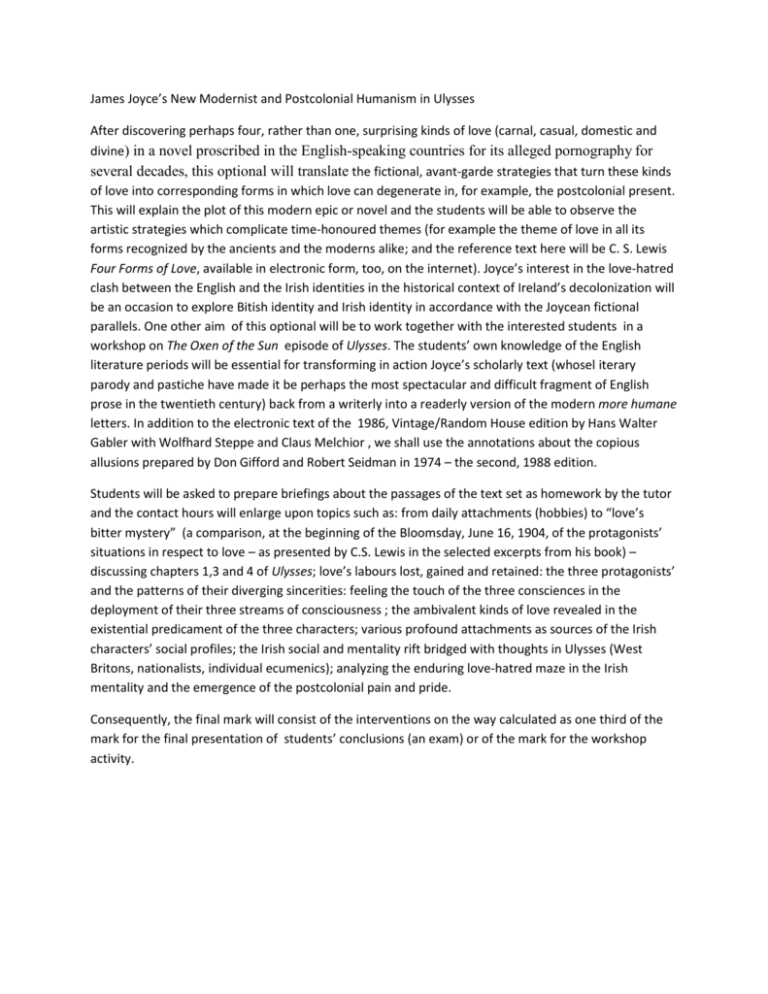
James Joyce’s New Modernist and Postcolonial Humanism in Ulysses After discovering perhaps four, rather than one, surprising kinds of love (carnal, casual, domestic and divine) in a novel proscribed in the English-speaking countries for its alleged pornography for several decades, this optional will translate the fictional, avant-garde strategies that turn these kinds of love into corresponding forms in which love can degenerate in, for example, the postcolonial present. This will explain the plot of this modern epic or novel and the students will be able to observe the artistic strategies which complicate time-honoured themes (for example the theme of love in all its forms recognized by the ancients and the moderns alike; and the reference text here will be C. S. Lewis Four Forms of Love, available in electronic form, too, on the internet). Joyce’s interest in the love-hatred clash between the English and the Irish identities in the historical context of Ireland’s decolonization will be an occasion to explore Bitish identity and Irish identity in accordance with the Joycean fictional parallels. One other aim of this optional will be to work together with the interested students in a workshop on The Oxen of the Sun episode of Ulysses. The students’ own knowledge of the English literature periods will be essential for transforming in action Joyce’s scholarly text (whosel iterary parody and pastiche have made it be perhaps the most spectacular and difficult fragment of English prose in the twentieth century) back from a writerly into a readerly version of the modern more humane letters. In addition to the electronic text of the 1986, Vintage/Random House edition by Hans Walter Gabler with Wolfhard Steppe and Claus Melchior , we shall use the annotations about the copious allusions prepared by Don Gifford and Robert Seidman in 1974 – the second, 1988 edition. Students will be asked to prepare briefings about the passages of the text set as homework by the tutor and the contact hours will enlarge upon topics such as: from daily attachments (hobbies) to “love’s bitter mystery” (a comparison, at the beginning of the Bloomsday, June 16, 1904, of the protagonists’ situations in respect to love – as presented by C.S. Lewis in the selected excerpts from his book) – discussing chapters 1,3 and 4 of Ulysses; love’s labours lost, gained and retained: the three protagonists’ and the patterns of their diverging sincerities: feeling the touch of the three consciences in the deployment of their three streams of consciousness ; the ambivalent kinds of love revealed in the existential predicament of the three characters; various profound attachments as sources of the Irish characters’ social profiles; the Irish social and mentality rift bridged with thoughts in Ulysses (West Britons, nationalists, individual ecumenics); analyzing the enduring love-hatred maze in the Irish mentality and the emergence of the postcolonial pain and pride. Consequently, the final mark will consist of the interventions on the way calculated as one third of the mark for the final presentation of students’ conclusions (an exam) or of the mark for the workshop activity.
